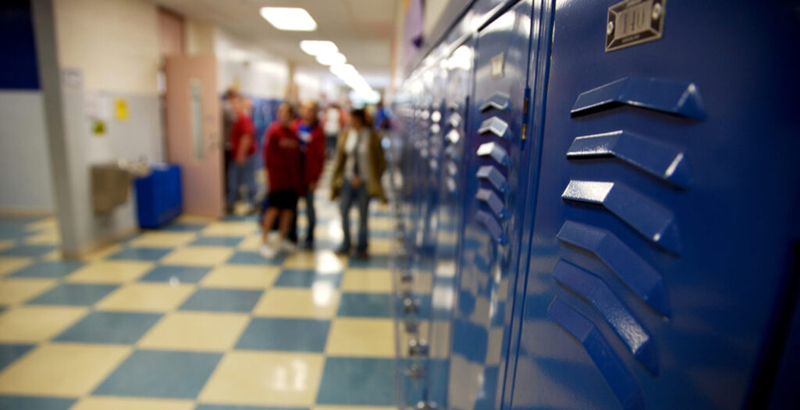State Money Could Follow Struggling Students to Private or Home School

Get stories like this delivered straight to your inbox. Sign up for The 74 Newsletter
Parents of students who are struggling to read in elementary school might soon have the option to pull their students out of public school and into private school or homeschooling, paid for with government subsidies taken out of the public education budget.
Sen. Sharon Hewitt’s Senate Bill 203 would create the Reading Education Savings Account program. The money would allow second- or third-grade students who aren’t reading at grade level to enroll in a private school or pay for homeschooling.
“If you’re not reading by third grade, you’re not going to be learning in the fourth grade and beyond,” said Hewitt, a Republican from Slidell, “and those children are set up for a lifetime of challenges.”
Based on 2019 LEAP test results only 46% of Louisiana third-graders were on track to master English, and 43% were on track to master math, Louisiana State Superintendent Cade Brumley said last year.
The subsidy would equal how much the state spends per student at public schools through its Minimum Foundation Plan (MFP) formula. For the 2020-21 school year, the base MFP amount the state spent in each parish was $4,125 per student, according to figures from the state school board. The actual amount per student in each school district varies depending on a variety of factors, including local tax revenue available, the number of low-income and special needs students.
The Department of Education anticipates the program will cost almost $224,000 annually, according to the bill’s fiscal note.
Hewitt’s bill passed out of a Senate education committee by a 5-1 vote.
“Not every child learns the same, and perhaps the child is in a school where the school is failing the child in terms of teaching them to read,” Hewitt said to the committee. “(This bill) just gives parents and children more choices and more options.”
Nine other states have implemented similar programs that have resulted in academic achievement growing over time, according to Erin Bendily, vice president for policy and strategy with the Pelican Institute who spoke in favor of the bill to the committee.
“We have that research, we know that it works,” she said.
Dissenting voices of the committee – specifically those of Chairman Cleo Fields, D-Baton Rouge, and Sen. Katrina Jackson, D-Monroe – were concerned the bill won’t help solve early education reading deficiency problems in public schools – and actually may make them worse — by drawing money from the MFP and giving it to parents to spend on private school or home school.
Jackson said lawmakers have to “take a historical perspective” in terms of how public education budgets had been drastically slashed in previous years.
Louisiana K-12 education’s budget has been reduced 40% to 60% over the past ten years, Jackson said, adding that lawmakers who voted for those cuts are now panicked about the state’s bad early education outcomes.
“Taking money from one place and putting enough to another place doesn’t truly help, there has to be a balance,” Jackson said, “and pulling kids out of schools that are just beginning to get funding to stay above water may not be the answer.”
Dannie Garrett with the Louisiana School Boards Association spoke in opposition of the bill for similar reasons.
Louisiana should look for early education solutions to Mississippi, where “they dumped a ton of money into literacy. They sent literacy coaches out to schools. They even went so far as to say ‘You can’t go to third grade if you can’t read,’” Garrett said.
“Their (standardized testing) scores soared because they actually put the money into programs in the public school to make literacy important,” he said.
Louisiana schools have received a massive influx of money from a federal COVID-19 relief package, including about $2.4 billion directly to local school systems and $200 million to the state education department.
The Louisiana Legislature also approved last year the Steve Carter Literacy Program that would pay for extra tutoring, reading materials, after-school and summer programs for students in kindergarten through third grade who either read below grade level or are at risk for reading difficulties.
However, the program has yet to receive any funding, Garrett said.
Hewitt’s bill moves to the full Senate floor for a vote.
Louisiana Illuminator is part of States Newsroom, a network of news bureaus supported by grants and a coalition of donors as a 501c(3) public charity. Louisiana Illuminator maintains editorial independence. Contact Editor Jarvis DeBerry for questions: info@lailluminator.com. Follow Louisiana Illuminator on Facebook and Twitter.
Get stories like these delivered straight to your inbox. Sign up for The 74 Newsletter

;)